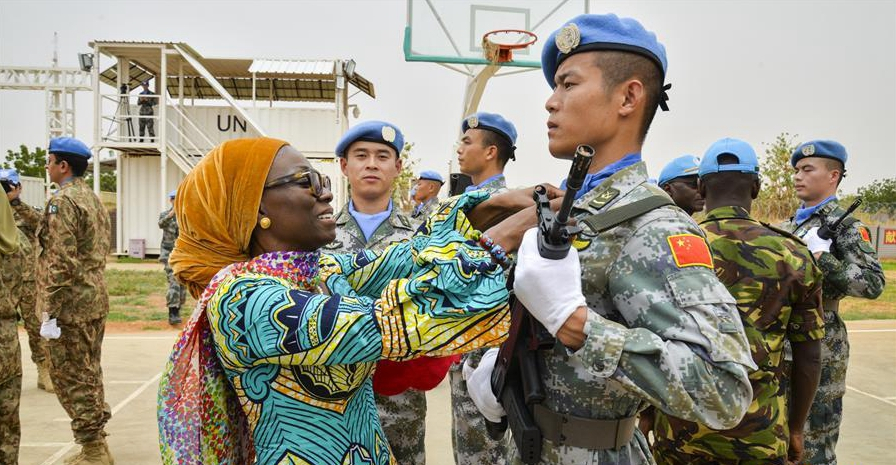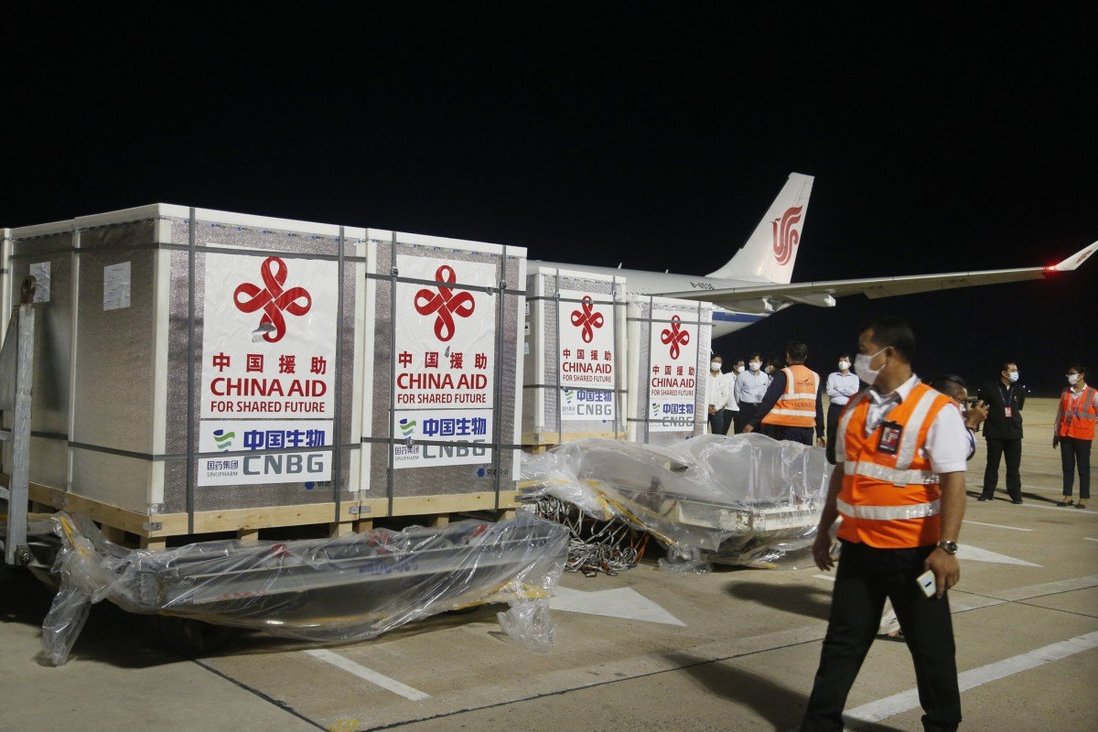Incorporating China's experience and wisdom, "building a community with a shared future for mankind" is China's flagship vision to collectively address global challenges facing the world today.
The concept was highlighted when the Communist Party of China (CPC) celebrated its centenary, as Chinese President Xi Jinping, also general secretary of the CPC Central Committee, stressed in his speech that China will work with other countries "to build a new type of international relations and a human community with a shared future."
Since the concept was proposed eight years ago, it has resonated louder in a world undergoing profound changes unseen in a century.
We must continue working to promote the building of a human community with a shared future.
The Party cares about the future of humanity, and wishes to move forward in tandem with all progressive forces around the world. China has always worked to safeguard world peace, contribute to global development, and preserve international order.
- Chinese President Xi Jinping's remarks at CPC centenary ceremony
Against unilateralism and Cold War mentality
The human race needs more than ever to oppose unilateralism to vanquish the deadly pathogen, slow down the rising of sea levels, boost collective security and bolster common development. No one country can address these challenges alone.
The concept emphasizes respecting each other, discussing issues as equals and coordinating responses to traditional and non-traditional threats.
It advocates taking a new approach to developing state-to-state relations with communication, not confrontation, and with partnership, not alliance, opposing Cold War mentality which goes against the common aspiration of all countries to seek peace, development and cooperation.
"We will continue to champion cooperation over confrontation, to open up rather than closing our doors, and to focus on mutual benefits instead of zero-sum games. We will oppose hegemony and power politics," Xi stressed at the CPC centenary gathering.

Anita Kiki Gebe, deputy joint special representative of the United Nations-African Union Mission in Darfur, awards a UN peace medal to a soldier of the 2nd China Medium Utility Helicopter Unit in El-Fashir, Sudan, July 17, 2019. /Xinhua
Anita Kiki Gebe, deputy joint special representative of the United Nations-African Union Mission in Darfur, awards a UN peace medal to a soldier of the 2nd China Medium Utility Helicopter Unit in El-Fashir, Sudan, July 17, 2019. /Xinhua
The concept is the guiding principle of China's international relations. It underlies China's strategic thoughts on the long-term development of its bilateral ties. China has not only advocated the vision but also set an example in practice.
In October 2017, "a community with a shared future for mankind" was written into the CPC's Constitution and included in the preamble of China's Constitution the following year.
China has also actively participated in UN-centered multilateral activities, joined an extensive range of multilateral treaties and international conventions, and promoted the peaceful settlement of key regional issues, including the Korean Peninsula issue, the Iranian nuclear issue and the Afghanistan issue.
To oppose vaccine nationalism and protectionism
The global fight against COVID-19 has also fully proved that the concept is the right way for the whole world to cope with global challenges and build "a community of common health for mankind."
China has fulfilled its solemn commitment to making vaccines a global public good. Notwithstanding the limited production capacity and enormous demand at home, China has honored its commitment by providing more than 350 million doses of vaccines to the international community, including vaccine assistance to over 80 countries and vaccine exports to 40 plus countries, making great contributions to narrowing the "immunization gap."

Transport the Sinopharm COVID-19 vaccine at Phnom Penh International Airport in Cambodia. /Xinhua
Transport the Sinopharm COVID-19 vaccine at Phnom Penh International Airport in Cambodia. /Xinhua
As a counter measure against the rise of protectionism, the concept calls for promoting trade and investment liberalization and facilitation, and making economic globalization more open, inclusive and balanced so that its benefits are shared by all.
China's annual contribution to world economic growth has remained at about 30 percent, and it has practiced building an open world economy with various measures, ranging from free trade zones across the country to new major fairs such as the China International Fair for Trade in Services in Beijing, the China International Import Expo in Shanghai, and the Consumer Products Expo in Hainan.
As President Xi pledged on July 1, China will promote high-quality development of the Belt and Road Initiative so that "China's new achievements in development will provide the world with new opportunities on the journey ahead."
Widespread international recognition gained
President Xi first put forth with the notion of "a community with a shared future for mankind" in his 2013 speech at the Moscow State Institute of International Relations.
"Mankind, by living in the same global village within the same time and space where history and reality meet, have increasingly emerged as a community of common destiny in which everyone has in himself a little bit of others," he said.
Today, the concept has been written into various documents, including UN resolutions, and is supported by the international community.
The concept was first adopted into an official UN document on February 10, 2017, at the 55th session of the UN Commission for Social Development and it was also enshrined by the UN Security Council, the Human Rights Council and the First Committee of the UN General Assembly, the Qingdao Declaration of the Council of Heads of Member States of the Shanghai Cooperation Organization, and the Forum on China-Africa Cooperation Beijing Action Plan (2019-2021), turning the Chinese concept into an international consensus.
According to the Chinese Foreign Ministry, countries including Pakistan, Cambodia, Myanmar and the Laos have agreed with China to build a community with a shared future to strengthen bilateral ties. At the regional level, the Association of Southeast Asian Nations, African countries, Arab states and Latin American and Caribbean nations have reached consensuses with China on the concept.
Now the concept bears greater significance and relevance at the UN's high-level meeting, as leaders of countries, large and small, rich and poor, are expected to jointly forge solutions on issues including global public health, full equality and climate action.

